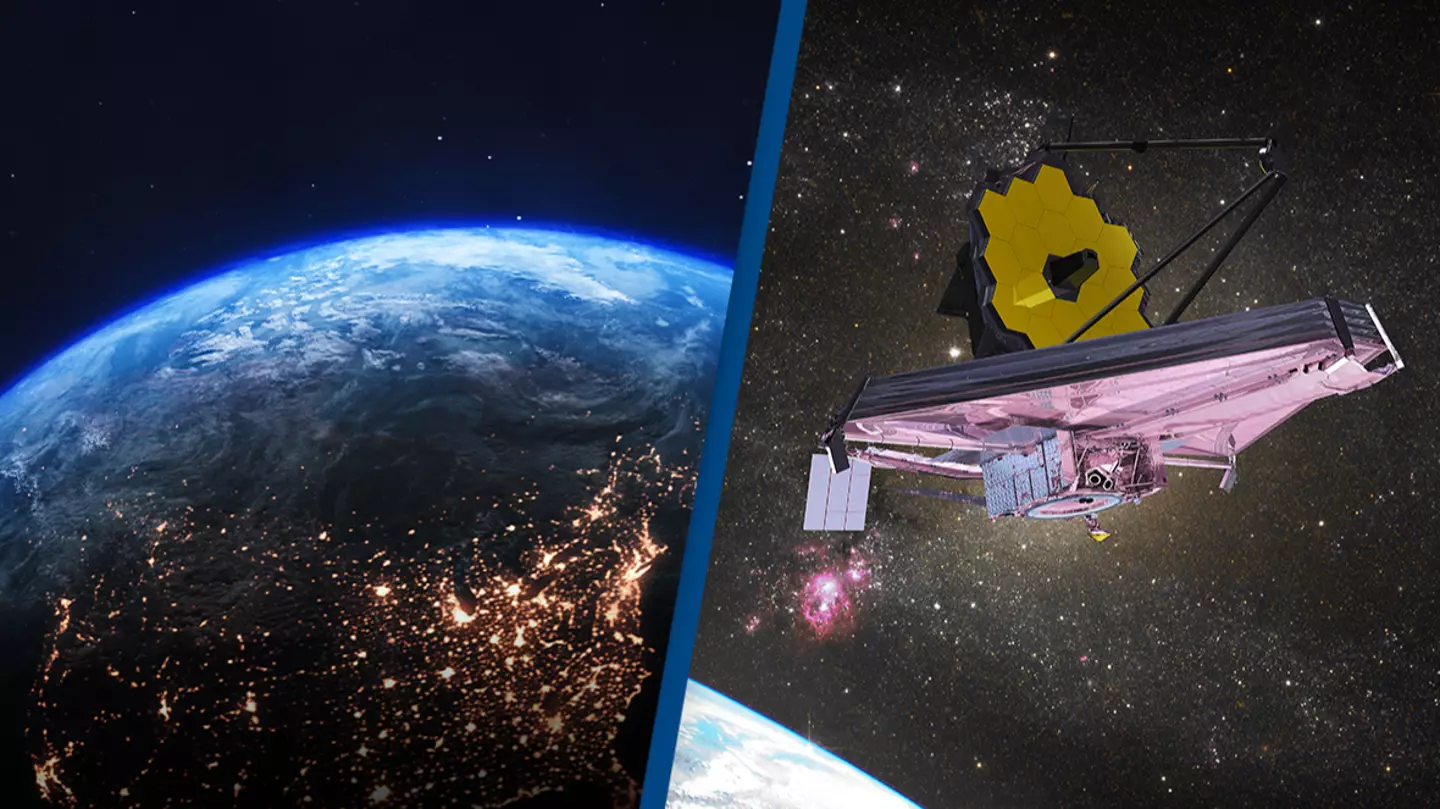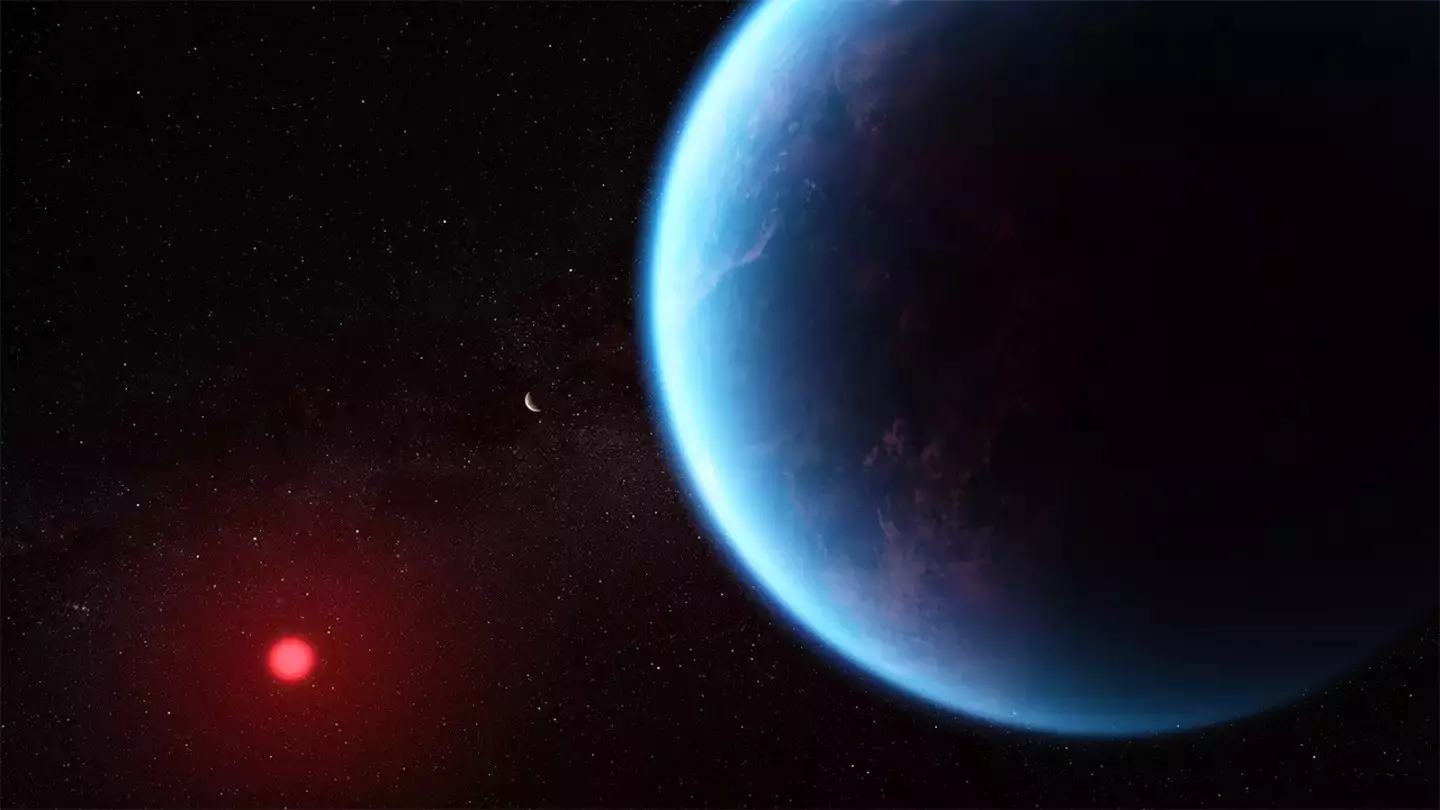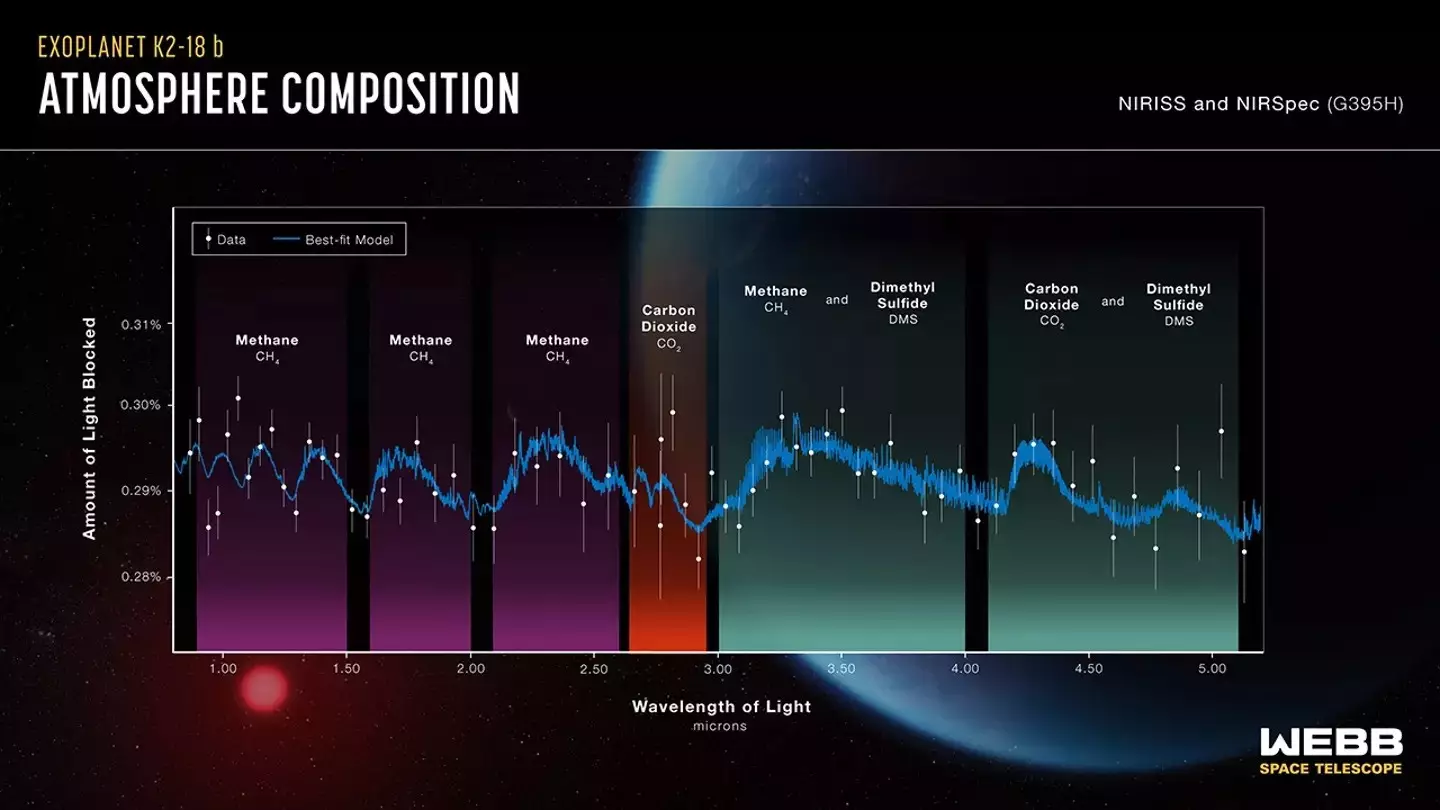
As the space agency continues to make incredible finds within our solar system, one particular find from last year still remains incredible impressive.
The discovery came thanks to NASA’s James Webb Space Telescope, which was launched on an Ariane 5 rocket from Europe’s Spaceport in French Guiana in South America.
And while we’ve had many impressive finds come from the telescope in recent times, a planet found 2023 is surely up there as one of the more impressive.

The exoplanet is known as K12-18 b (NASA, ESA, CSA, Joseph Olmsted (STScI))
The planet
An exoplanet called K2-18 b – also known as EPIC 201912552 b – orbits the red dwarf K2-18 in what NASA says is a ‘habitable zone’.
It’s located 124 light years away from earth and is around 2.6 times the radius of Earth and 8.6 times the mass of Earth.
It was first discovered by NASA’s Kepler space telescope which launched in 2009, however, during the Webb Telescope’s mission, the planet’s atmosphere was looked into more closely.
The findings
Last year, it was discovered K2-18b has a ‘presence of carbon-bearing molecules including methane and carbon dioxide’ – NASA revealed.
The discovery built on top of previous findings which suggested the planet could be a ‘Hycean exoplanet’ which is ‘one which has the potential to possess a hydrogen-rich atmosphere and a water ocean-covered surface’.
“These initial Webb observations also provided a possible detection of a molecule called dimethyl sulfide (DMS),” NASA added.
Signs of life?
Well, NASA explained: “The abundance of methane and carbon dioxide, and shortage of ammonia, support the hypothesis that there may be a water ocean underneath a hydrogen-rich atmosphere in K2-18 b.
“These initial Webb observations also provided a possible detection of a molecule called dimethyl sulfide (DMS). On Earth, this is only produced by life. The bulk of the DMS in Earth’s atmosphere is emitted from phytoplankton in marine environments.”
However, NASA also notes the planet’s large size could indicate it isn’t habitable to life forms as the planet’s ‘interior likely contains a large mantle of high-pressure ice’ or it’s possible its ocean is ‘too hot to be habitable or liquid’.

Atmosphere on exoplanet K2-18 b (NASA, ESA, CSA, Ralf Crawford (STScI), Joseph Olmsted (STScI))
What’s next?
University of Cambridge astronomer Nikku Madhusudhan said: “Our findings underscore the importance of considering diverse habitable environments in the search for life elsewhere.
“Traditionally, the search for life on exoplanets has focused primarily on smaller rocky planets, but the larger Hycean worlds are significantly more conducive to atmospheric observations.”
On Friday (26 April), the Webb telescope fully turned its attention towards K2-18b in a bid to further investigate the signs of potential life, observing the planet for eight hours, The Times reported.
Madhusudhan resolved: “Upcoming Webb observations should be able to confirm if DMS is indeed present in the atmosphere of K2-18 b at significant levels.
“[…] Our ultimate goal is the identification of life on a habitable exoplanet, which would transform our understanding of our place in the universe. Our findings are a promising step towards a deeper understanding of Hycean worlds in this quest.”


